Year 5 Fractions, Decimals and Percentages
Add and Subtract Decimals - Mental Methods
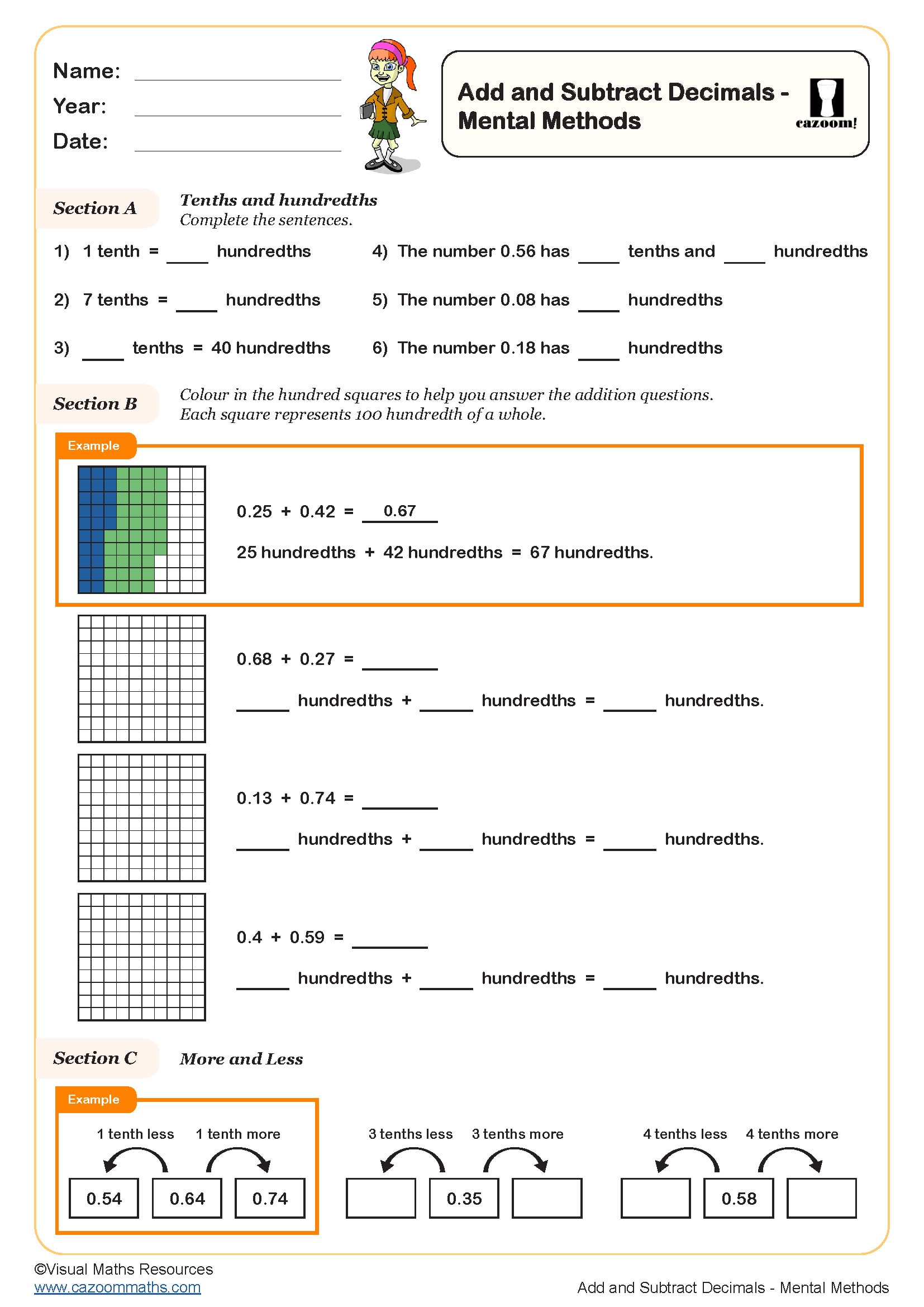
Add and Subtract Fractions with Different Denominators (B)
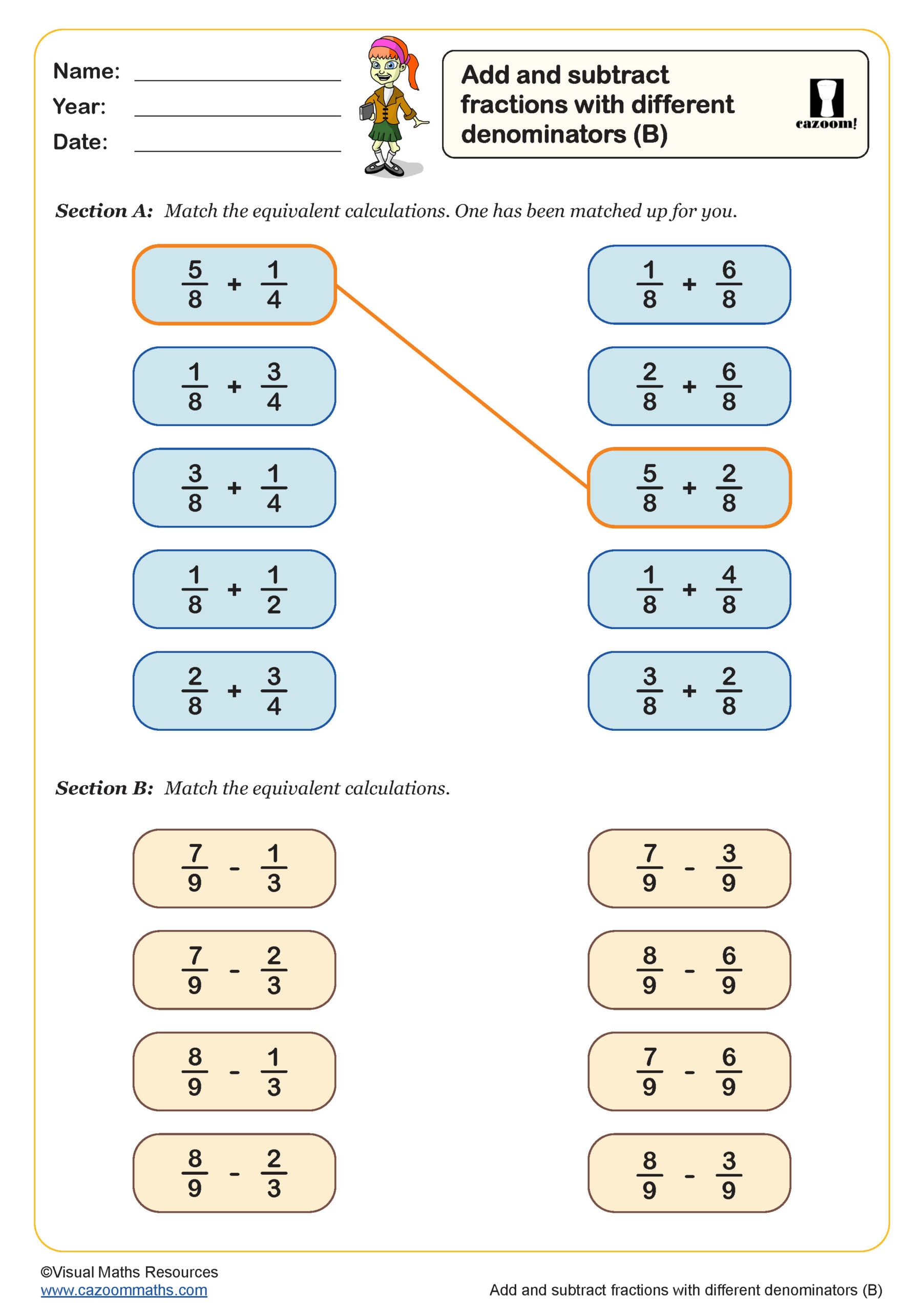
Colourful Equivalances (A)
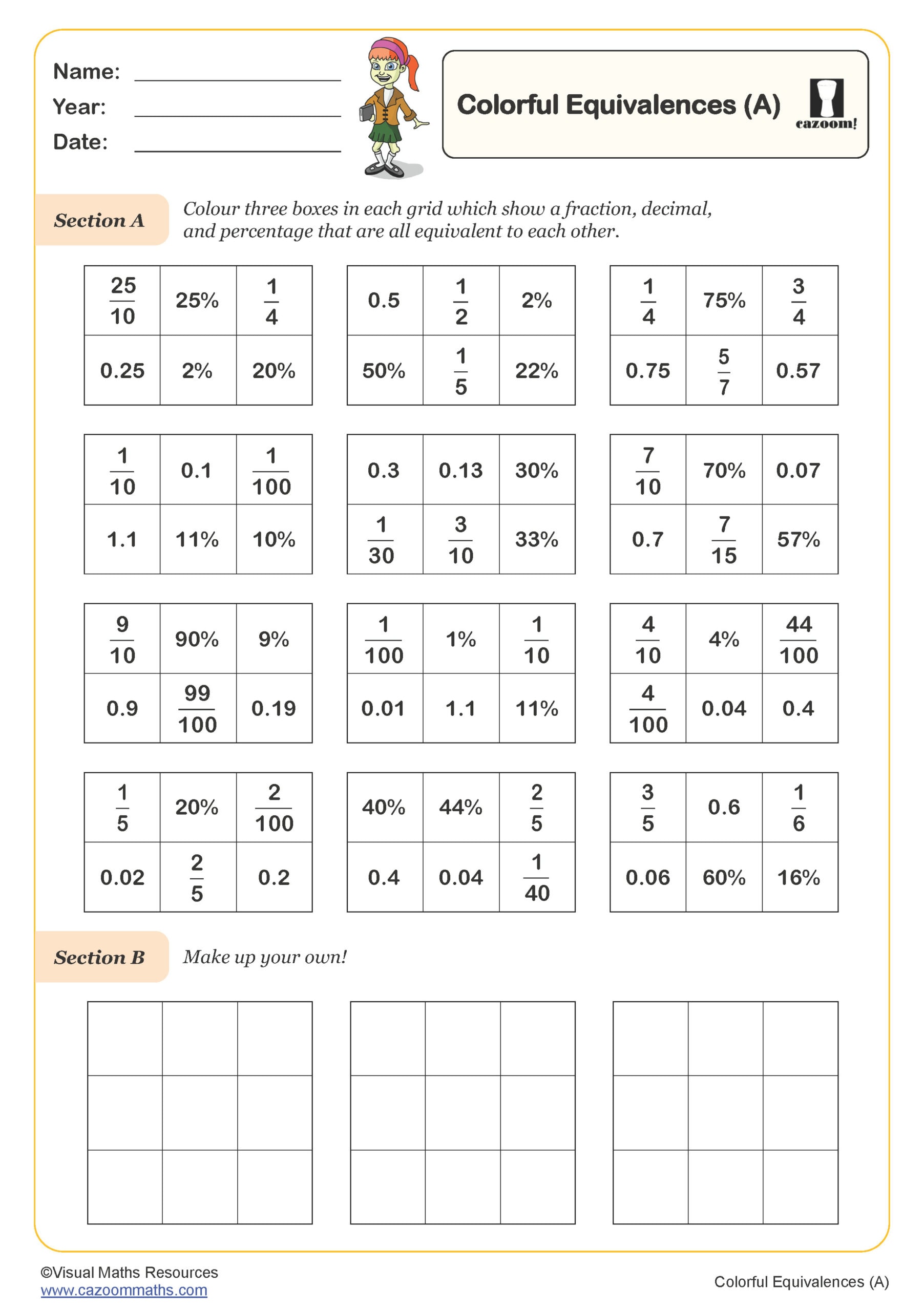
Column Addition - Decimals (A)
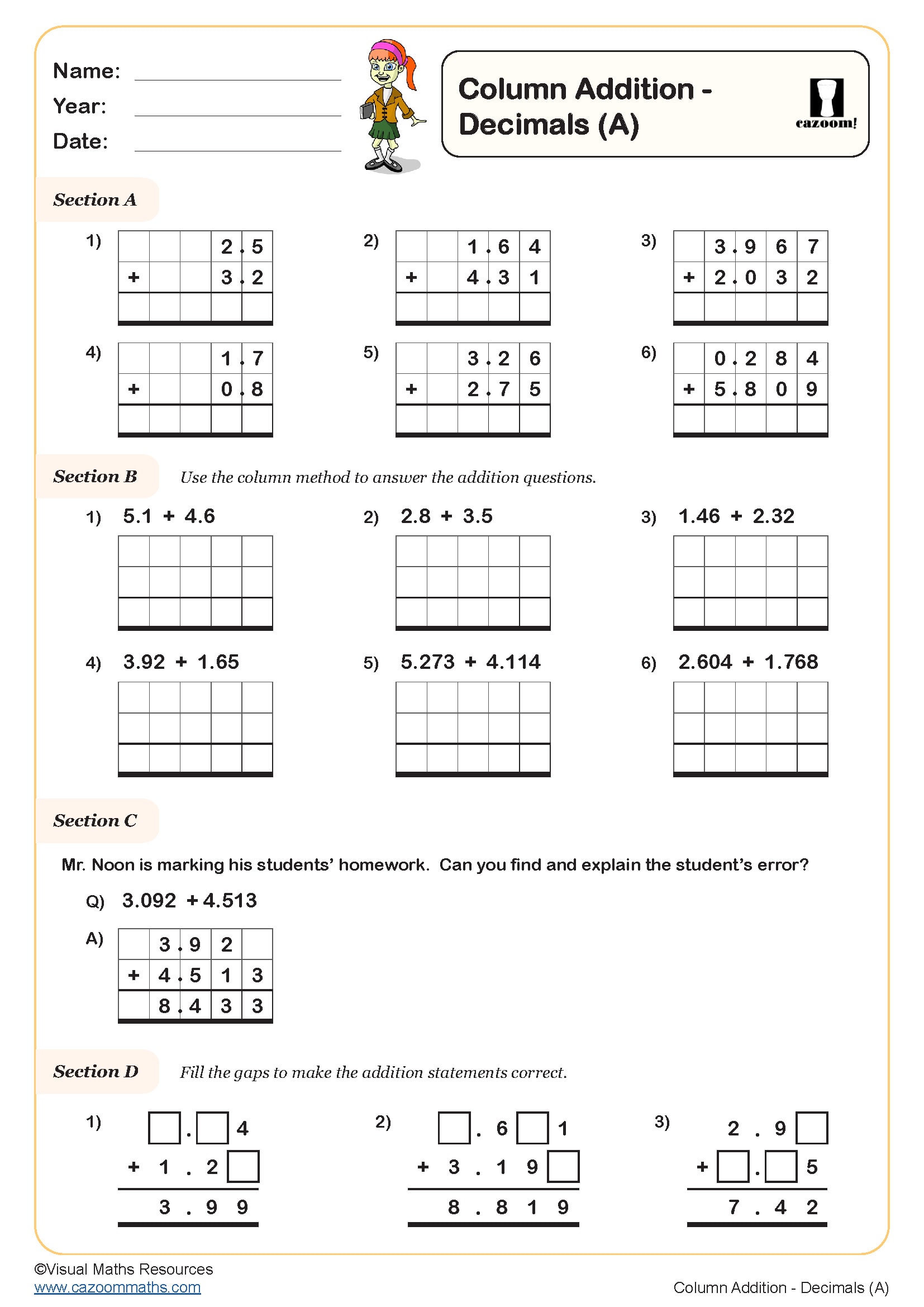
Column Addition - Decimals (B)
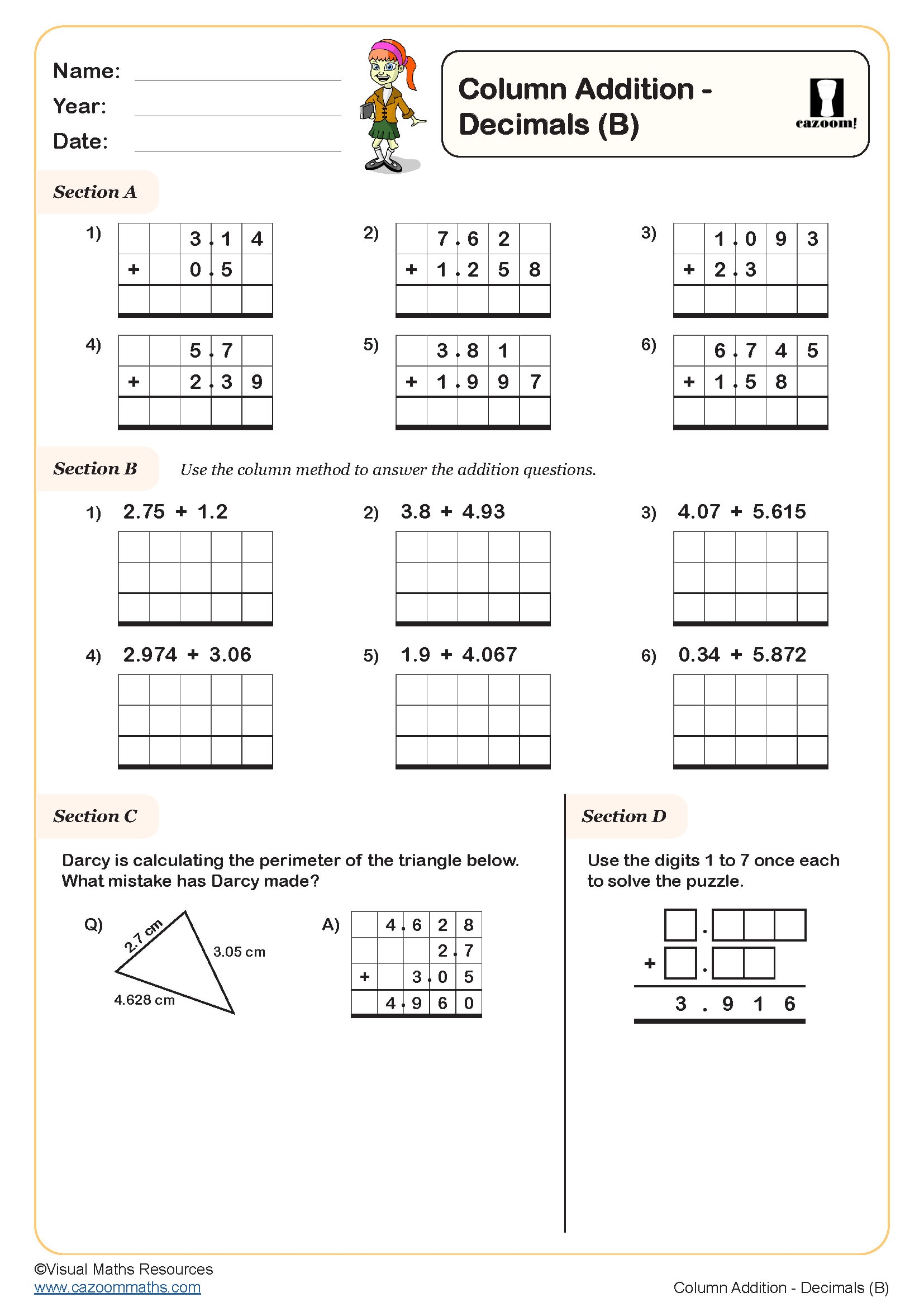
Compare Fractions Less Than 1
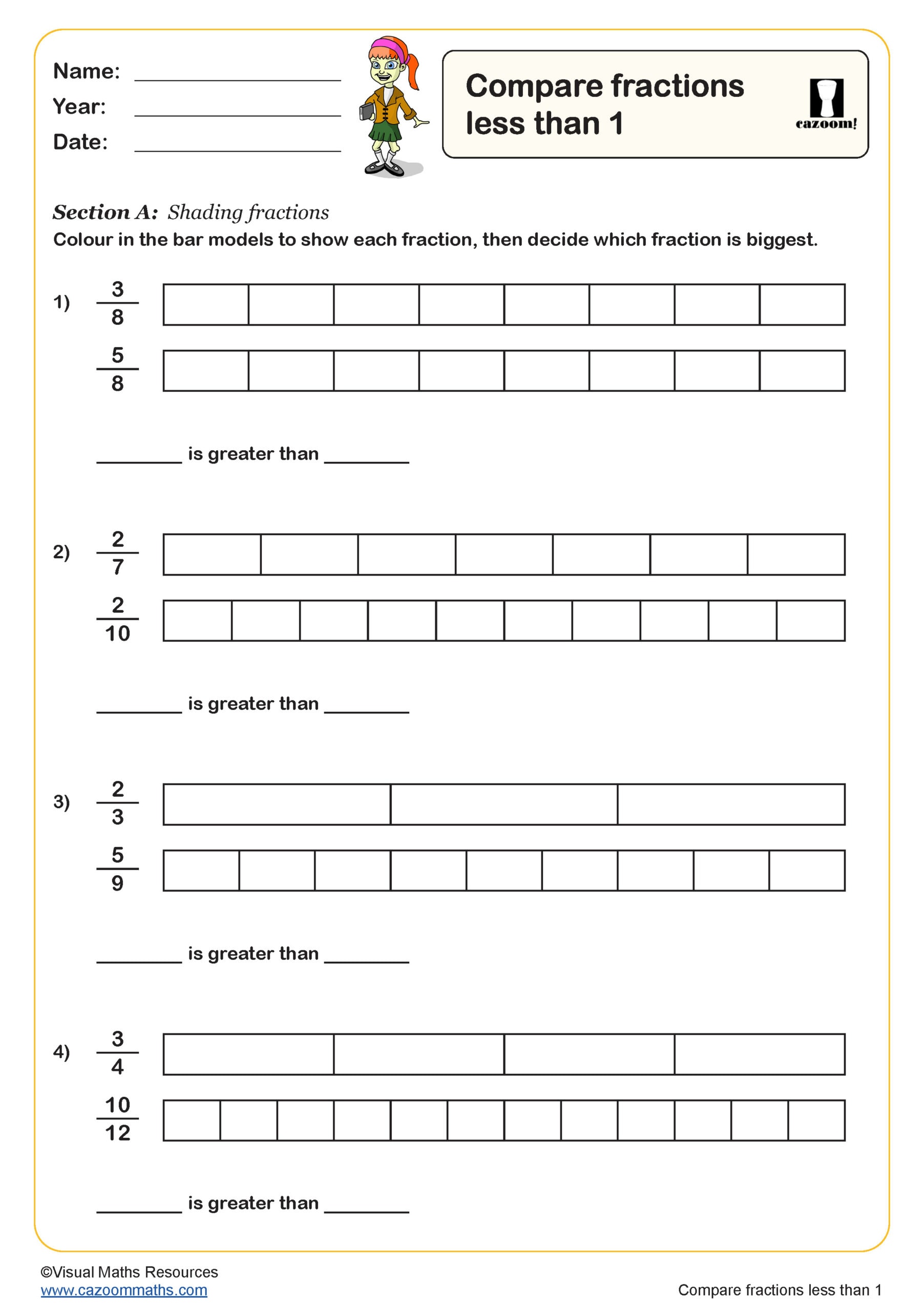
Crack the Code - Decimals
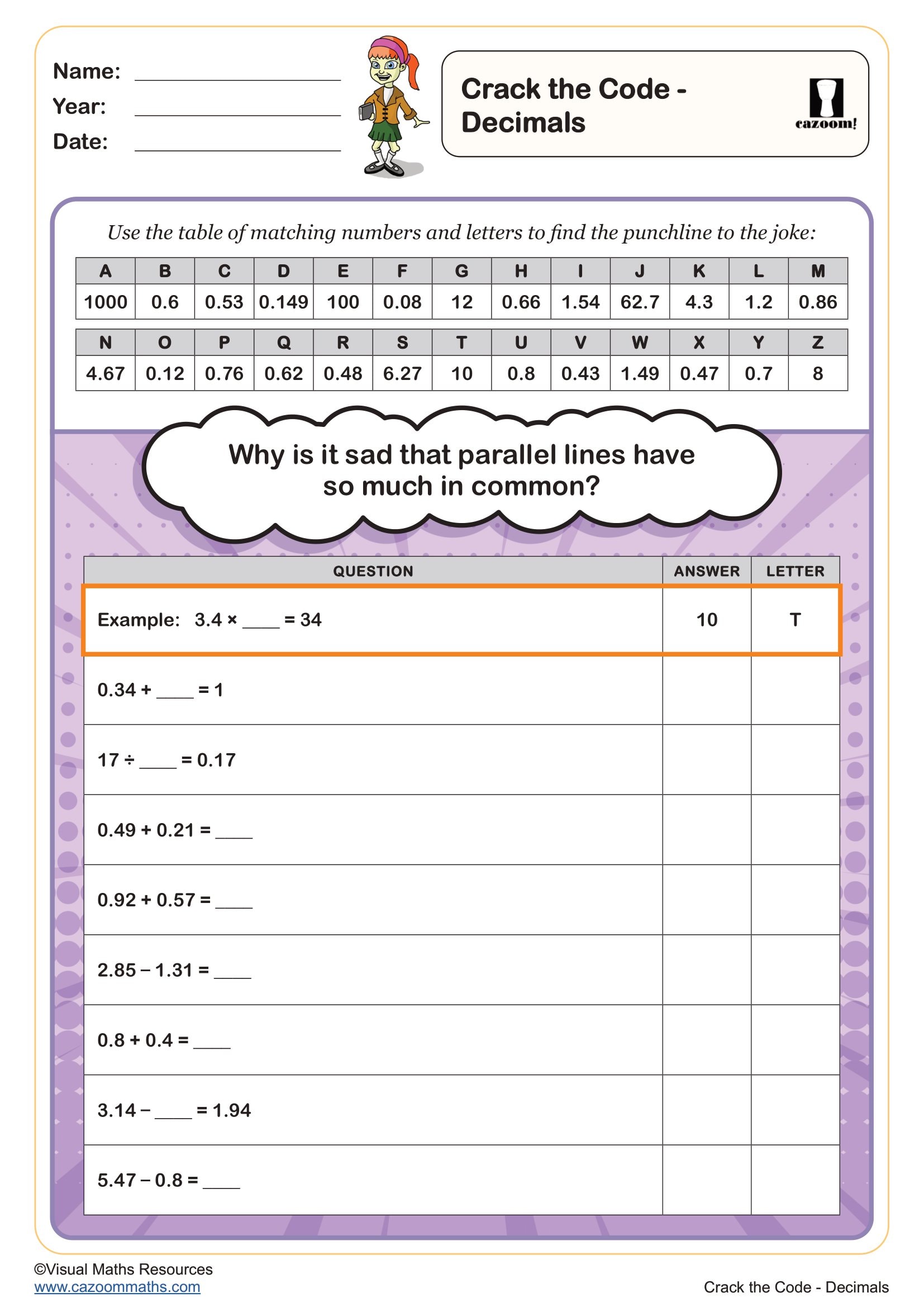
Decimals on Number Lines
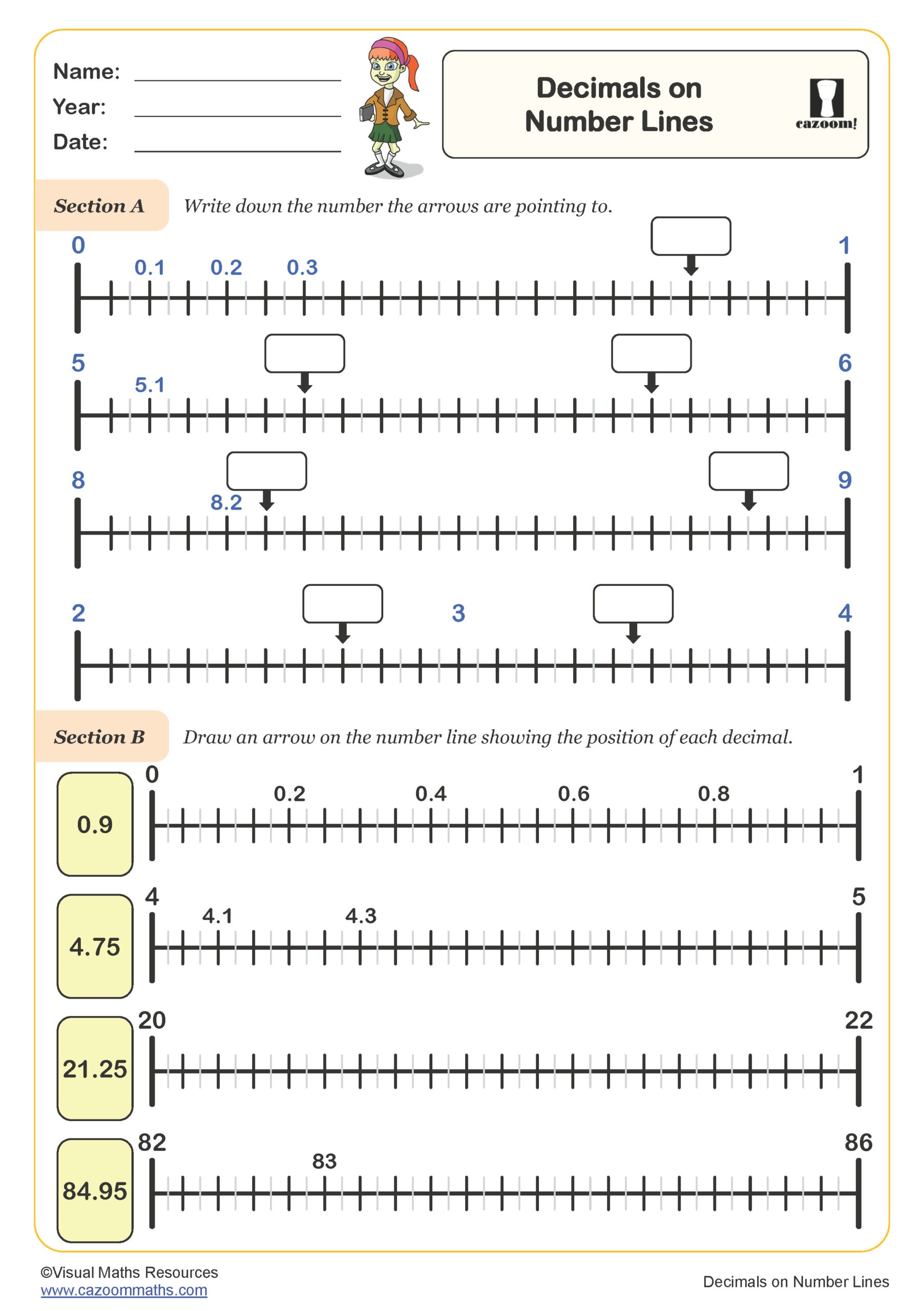
Divide Decimals by Integers (B)
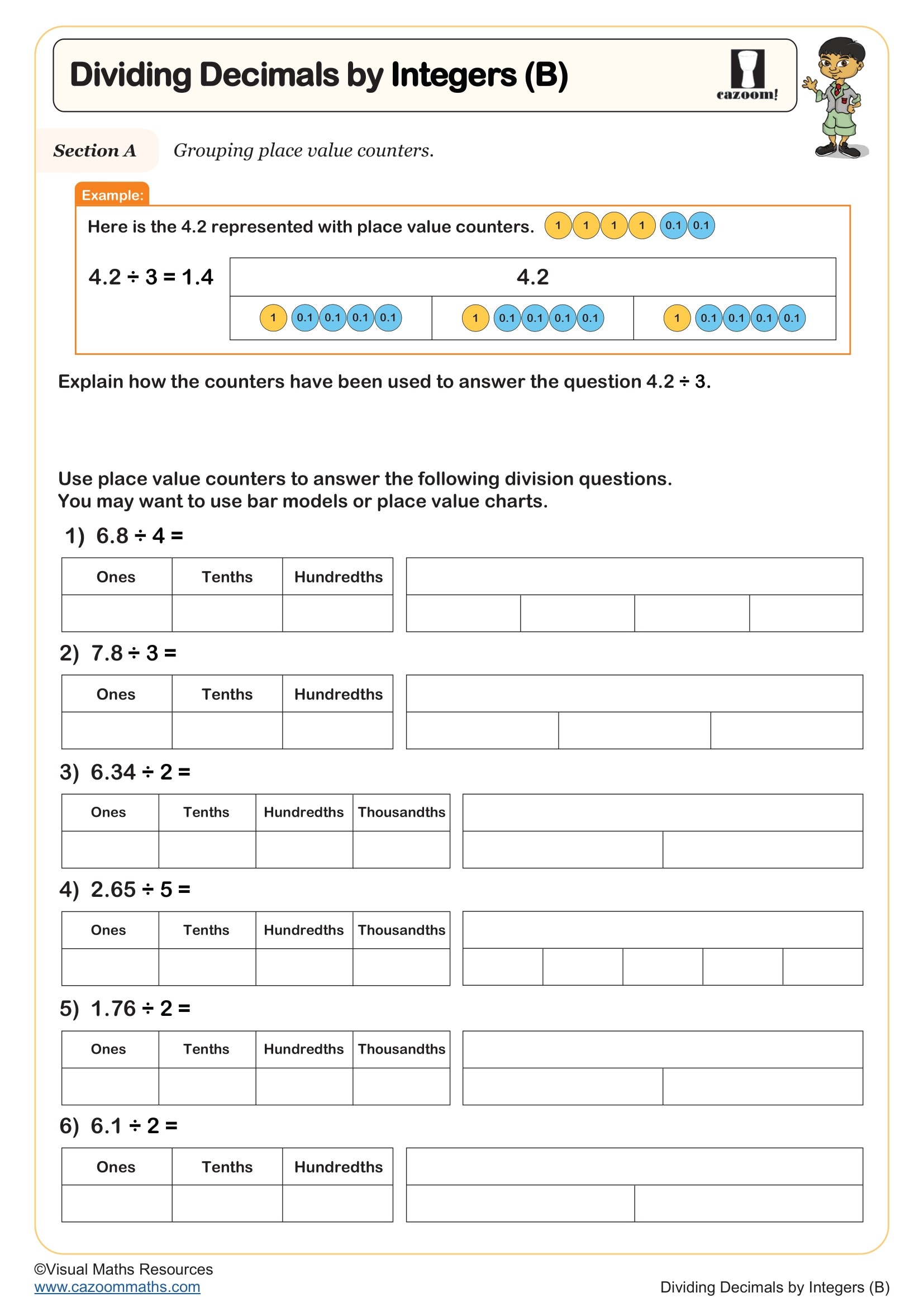
Equivalence Search
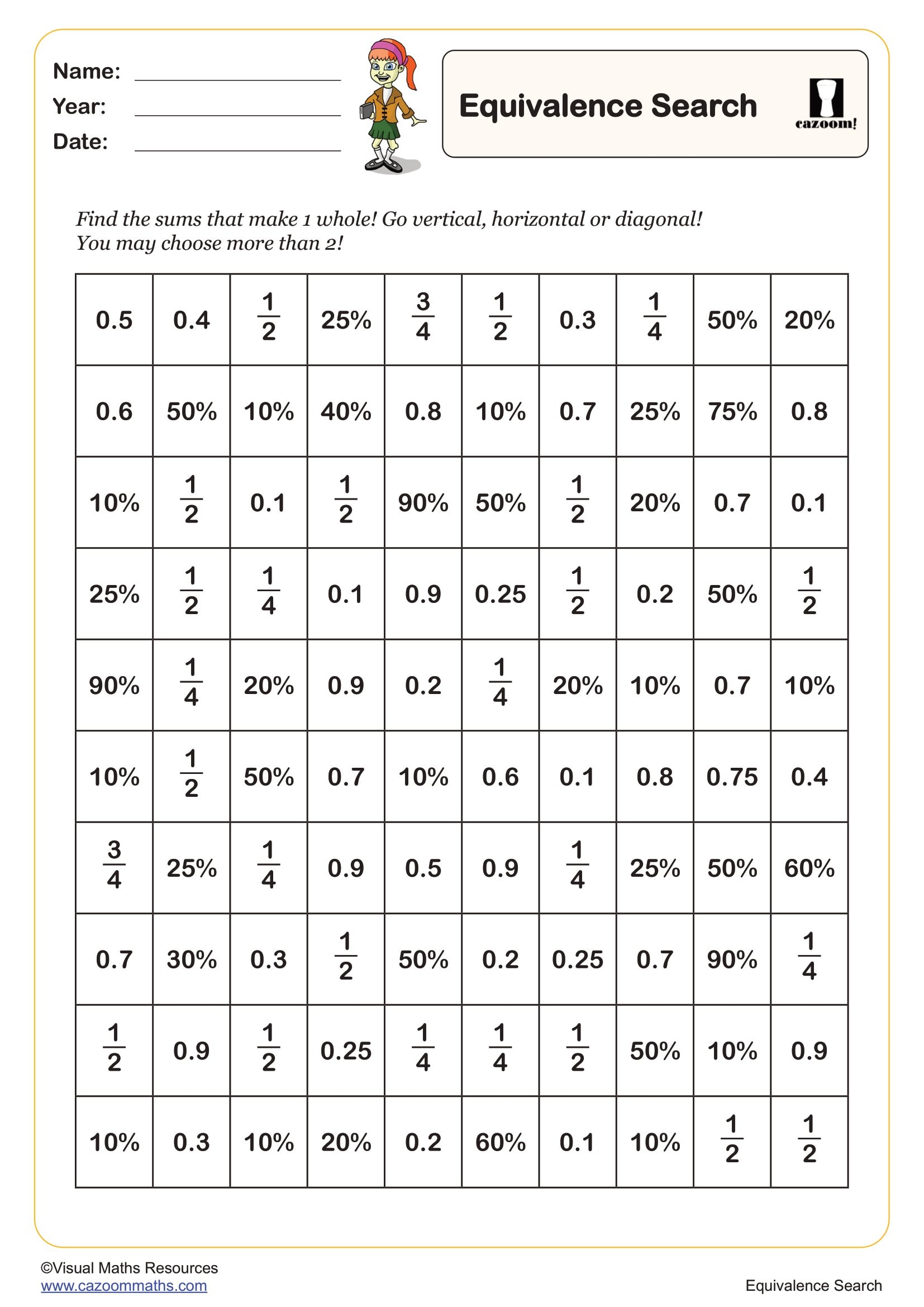
Finding Unit Fractions of Amounts
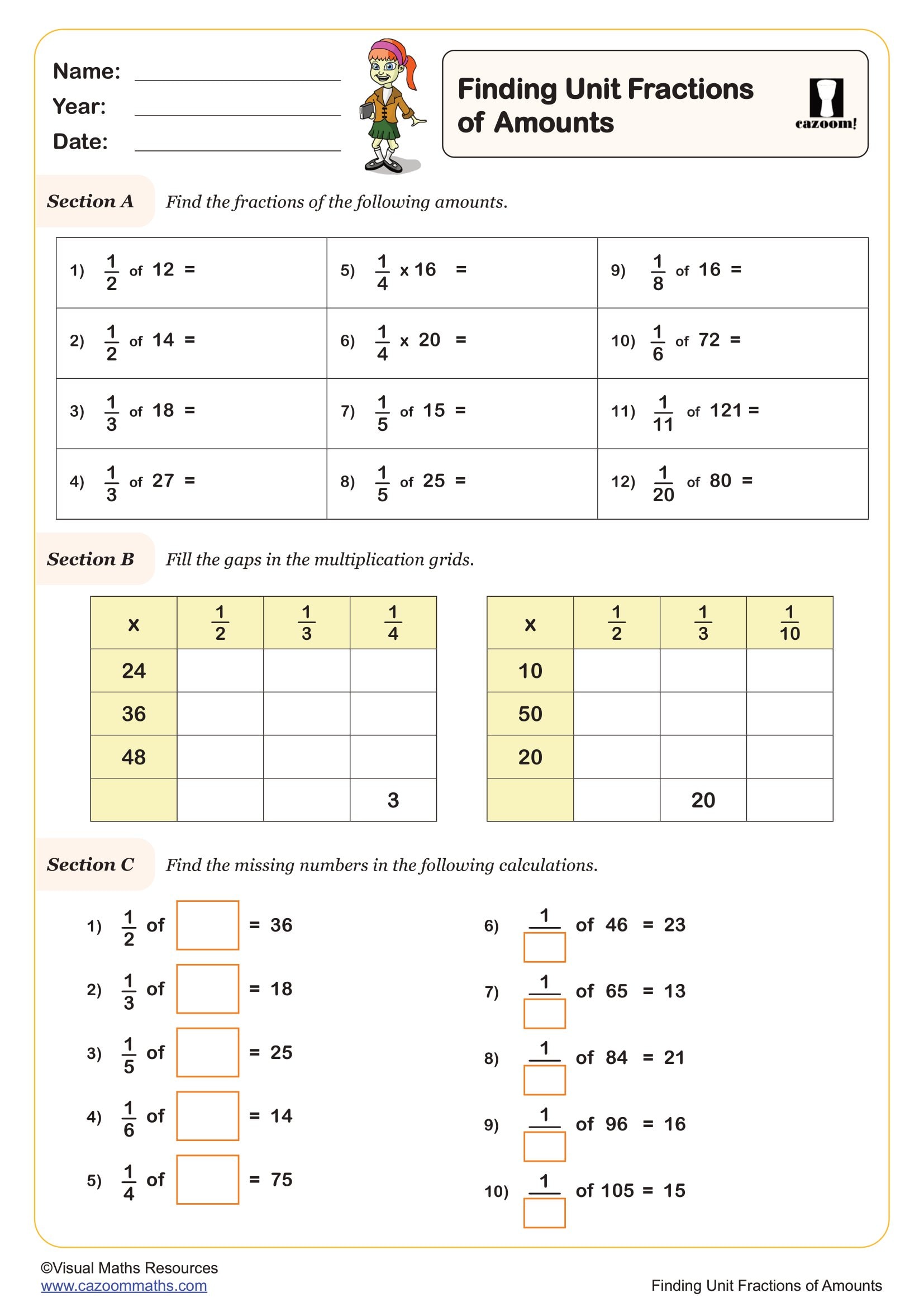
Fractions Equivalent to One Half
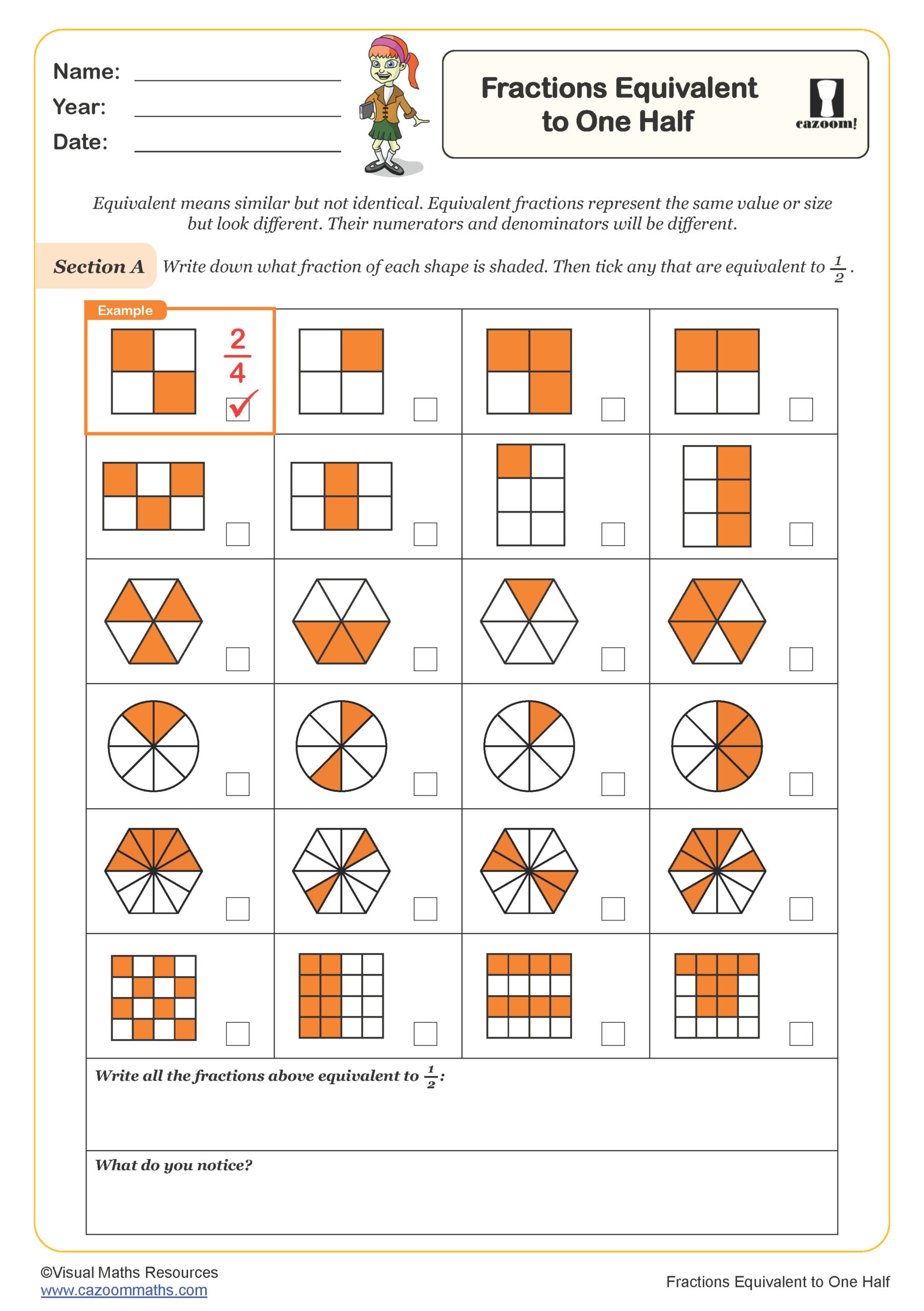
Fractions Equivalent to One Quarter
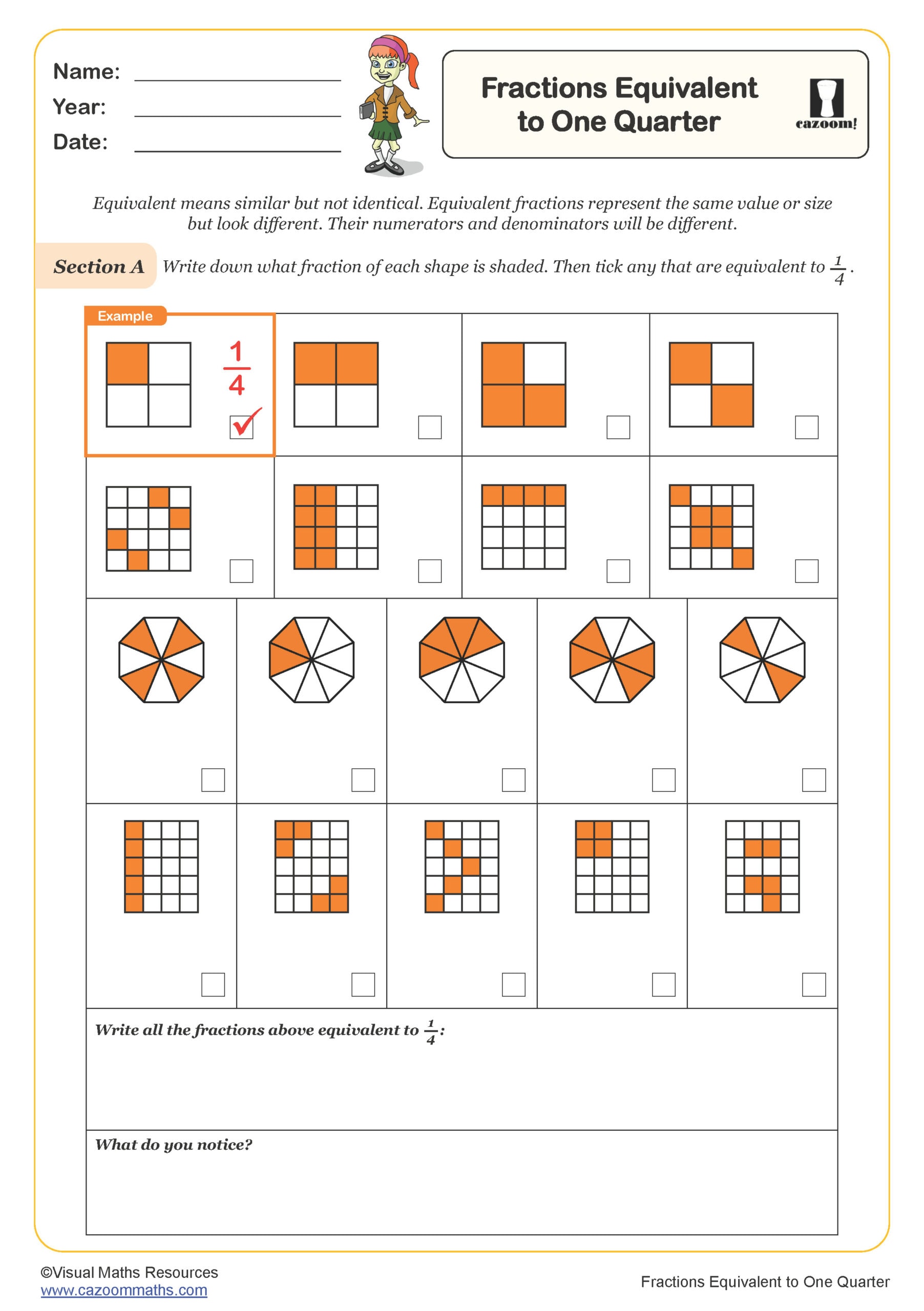
Fractions Equivalent to One Third
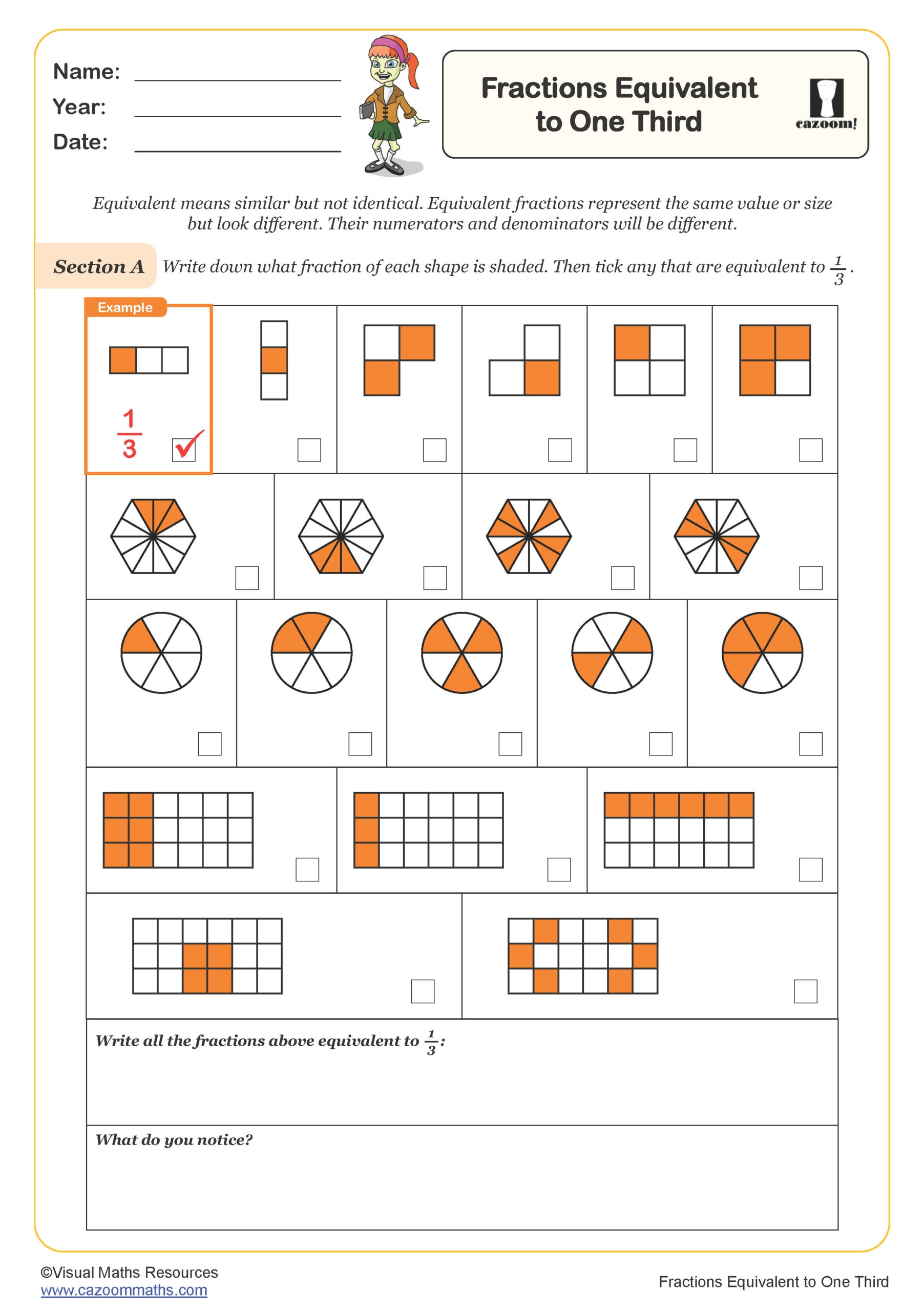
Fractions Greater Than One - Improper Fractions
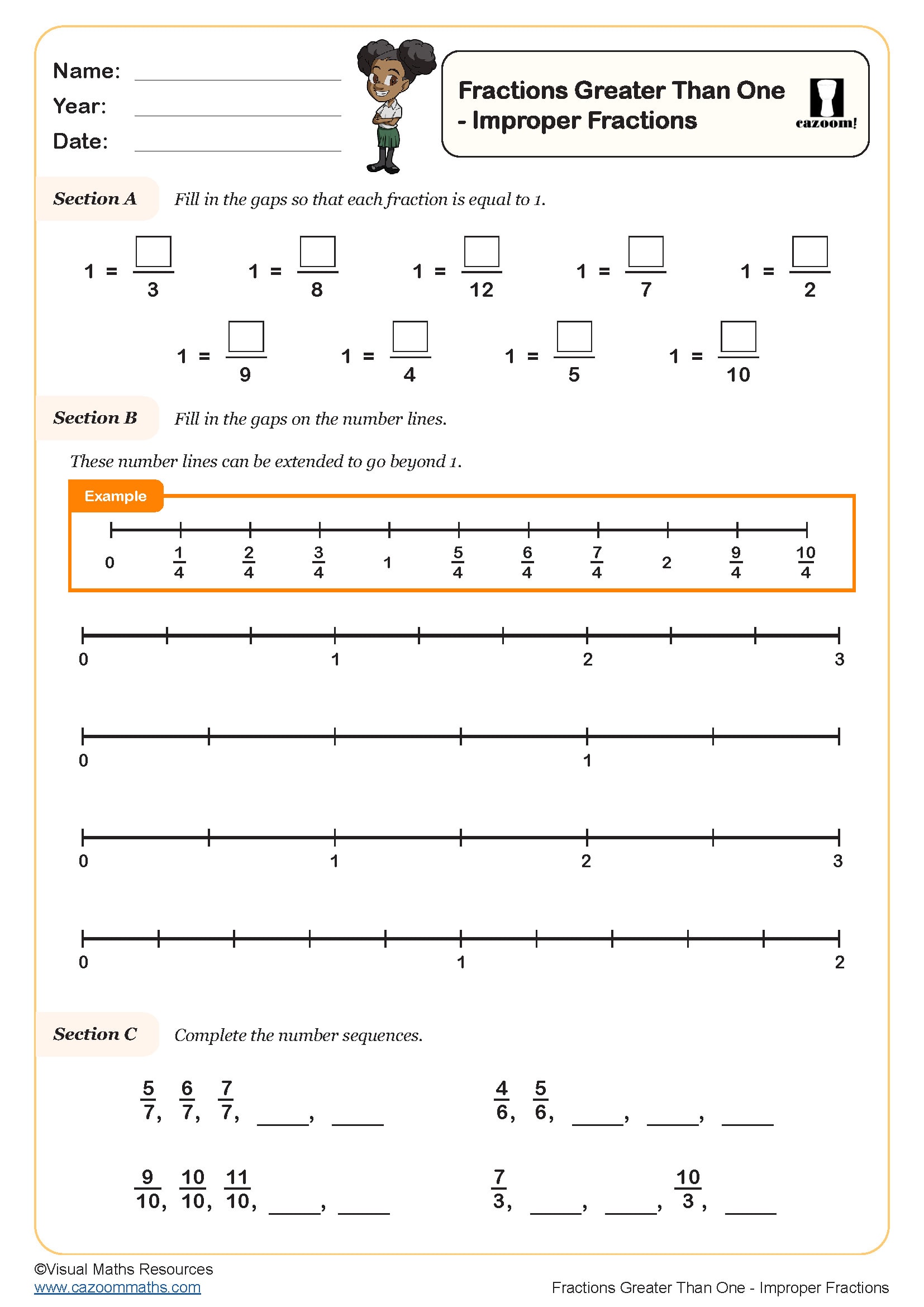
Fractions Greater Than One - Mixed Numbers
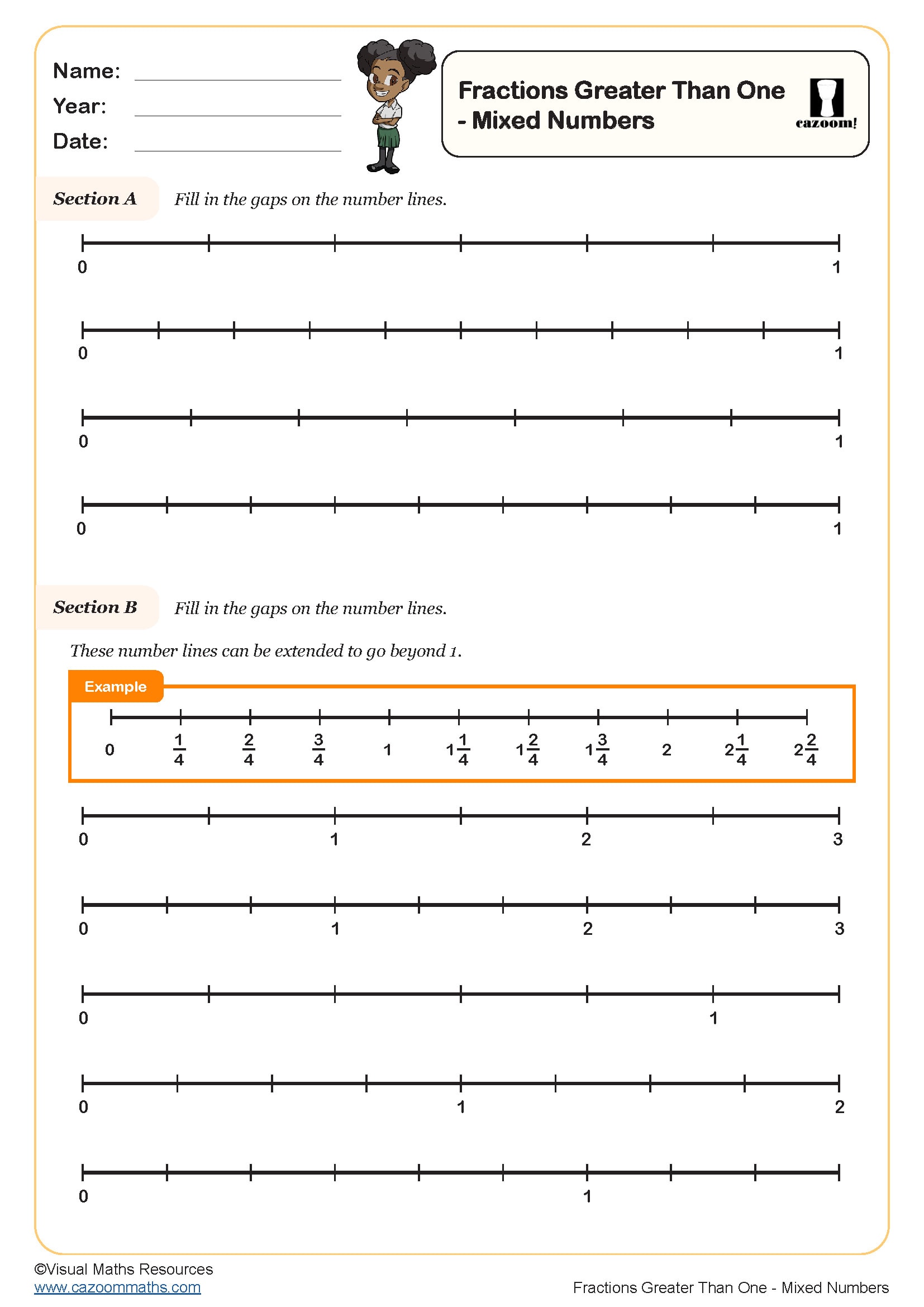
Fractions Greater Than One - Mixed Numbers and Improper Fractions
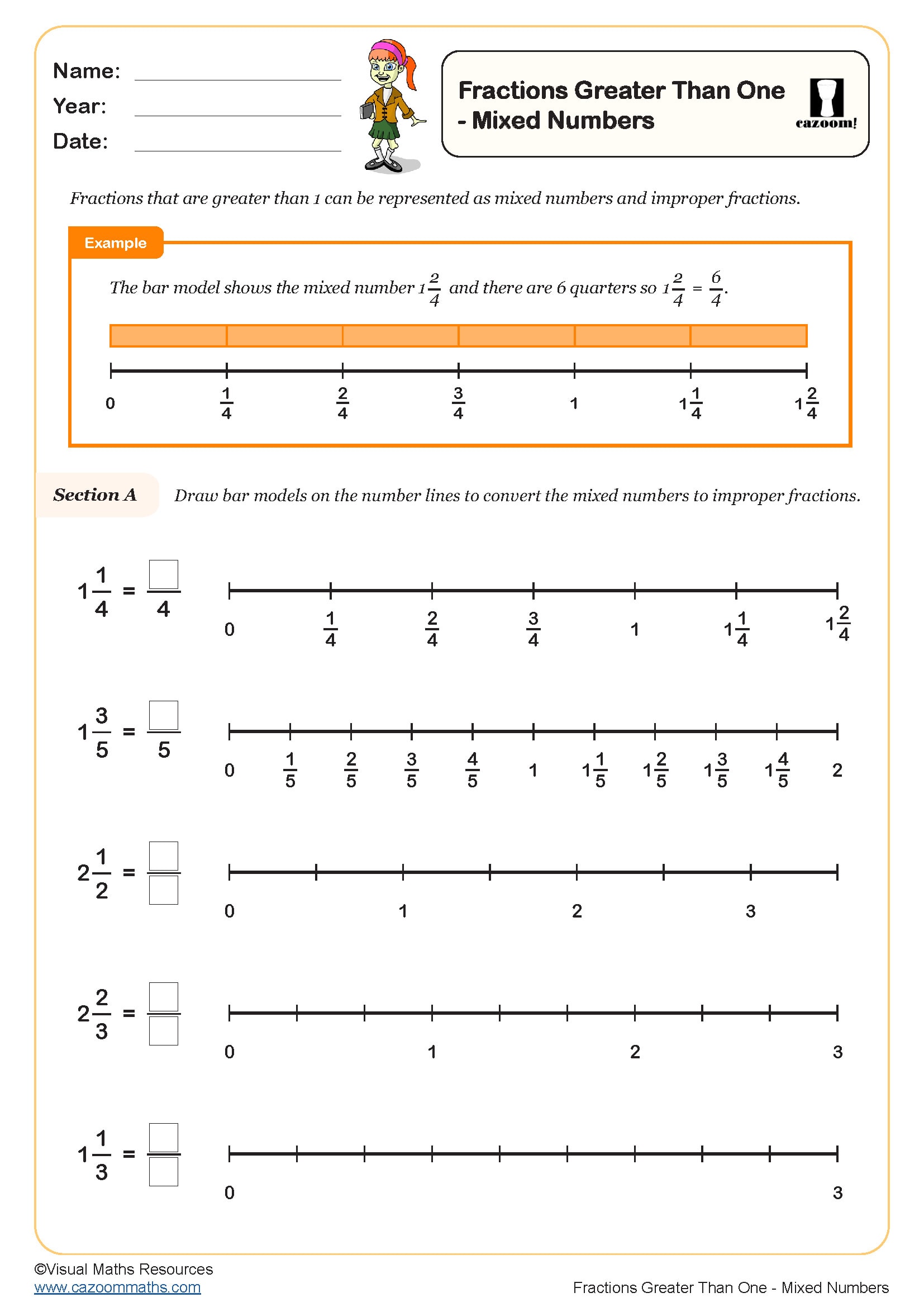
Fractions on Number Lines (A)
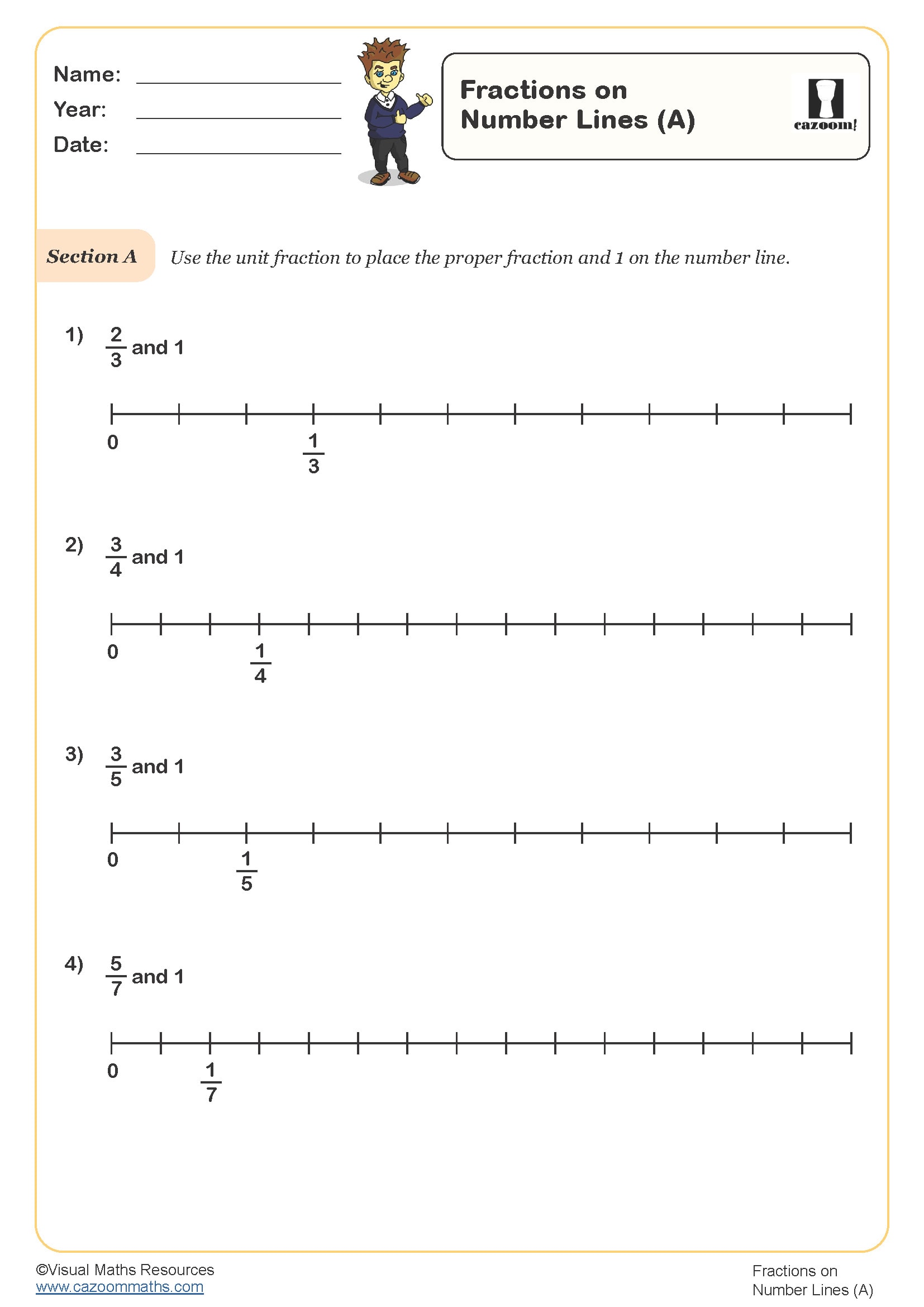
Mixed Numbers and Improper Fractions (A)
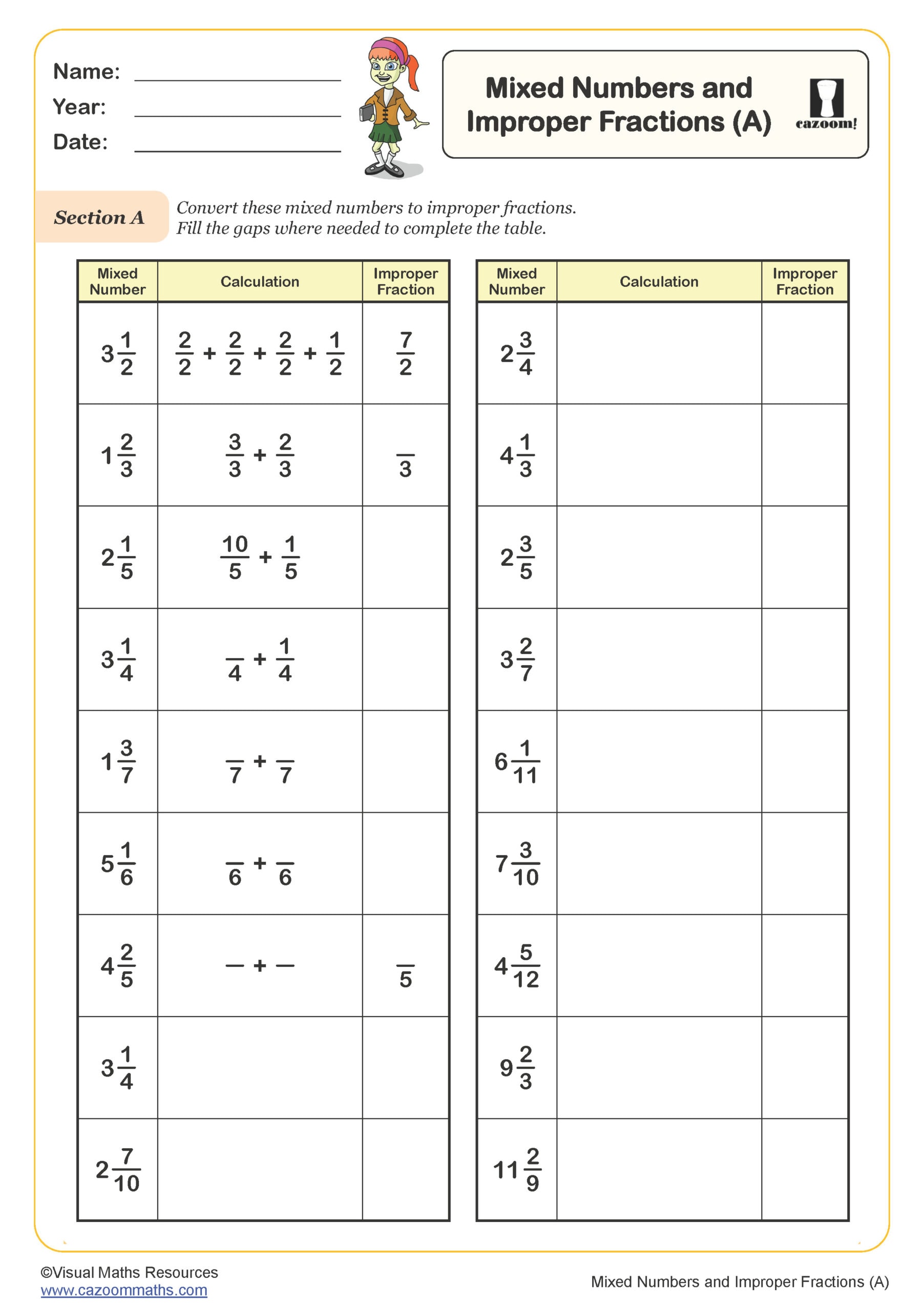
Ordering Decimals Maze
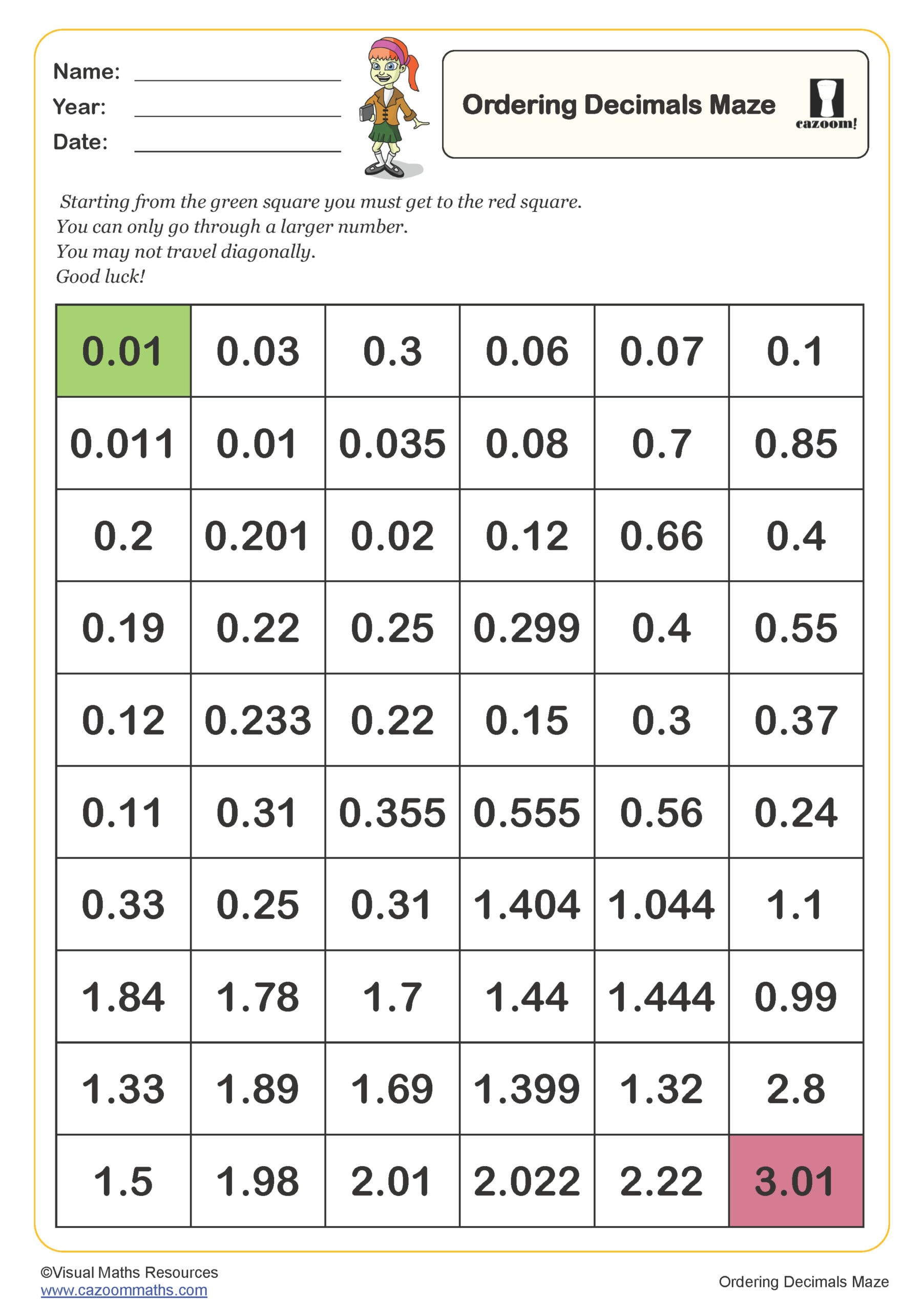
Partitioning Mixed Numbers
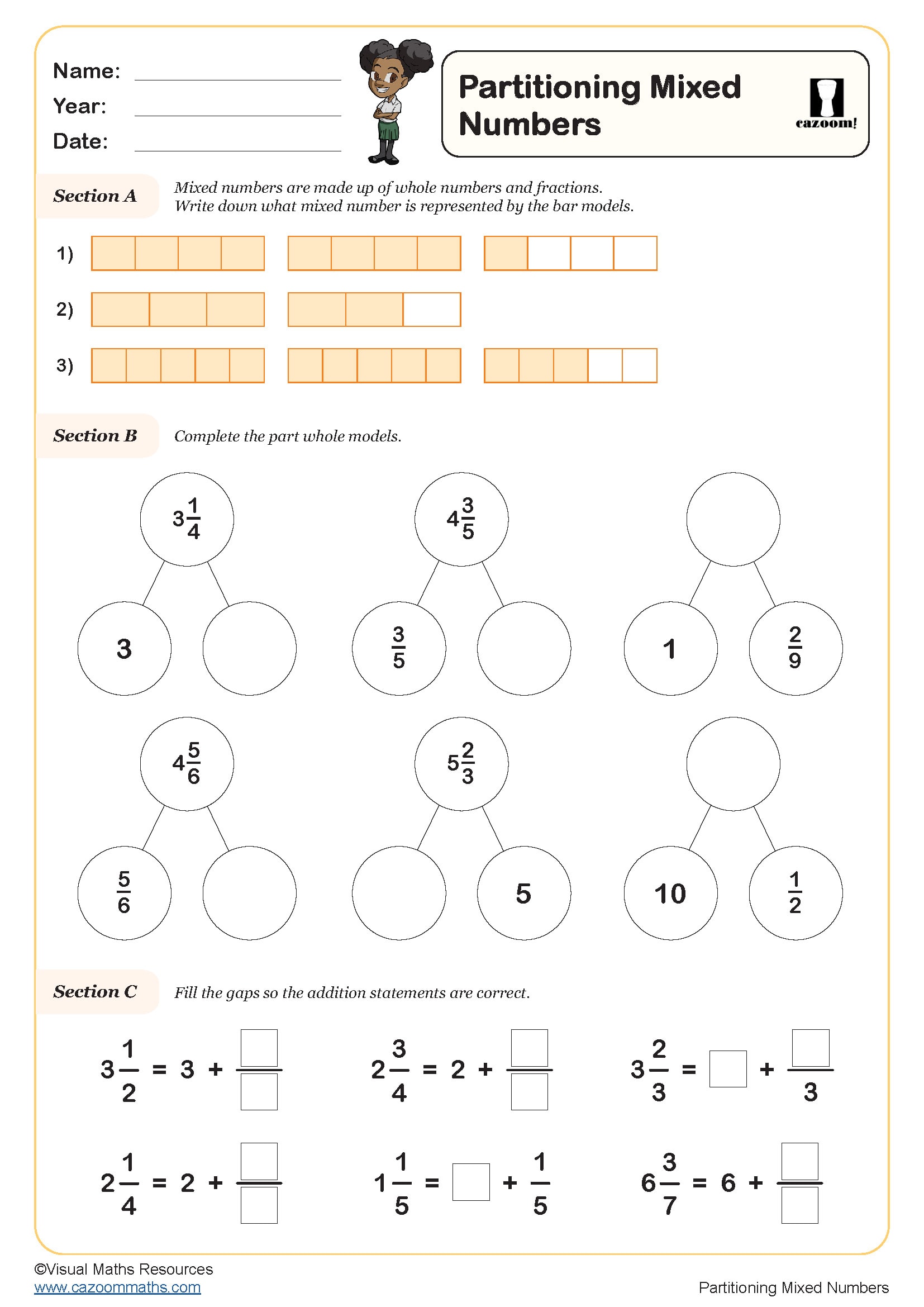
Spider Percentages
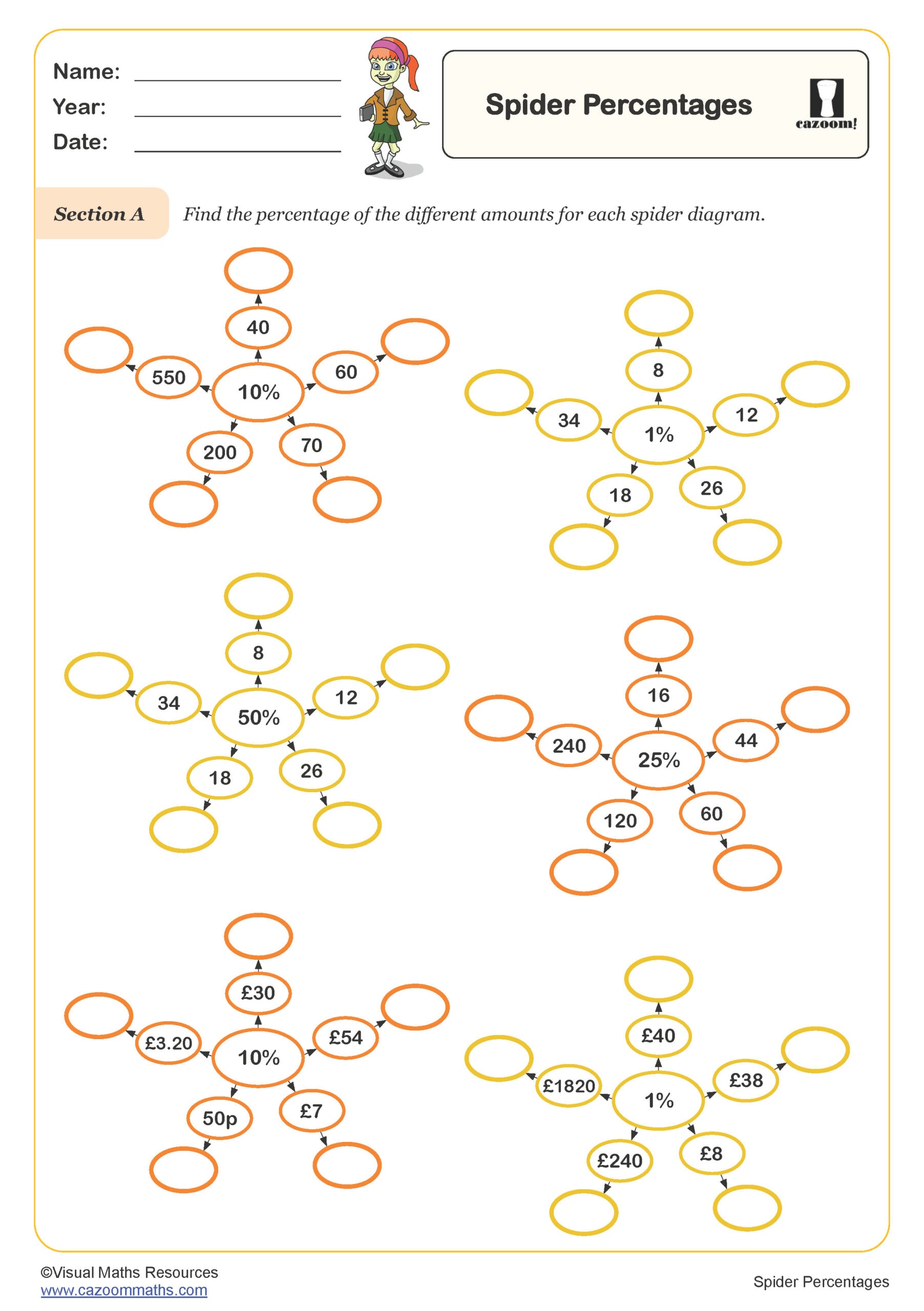
Using Number Lines to Add and Subtract Decimals Crossing One
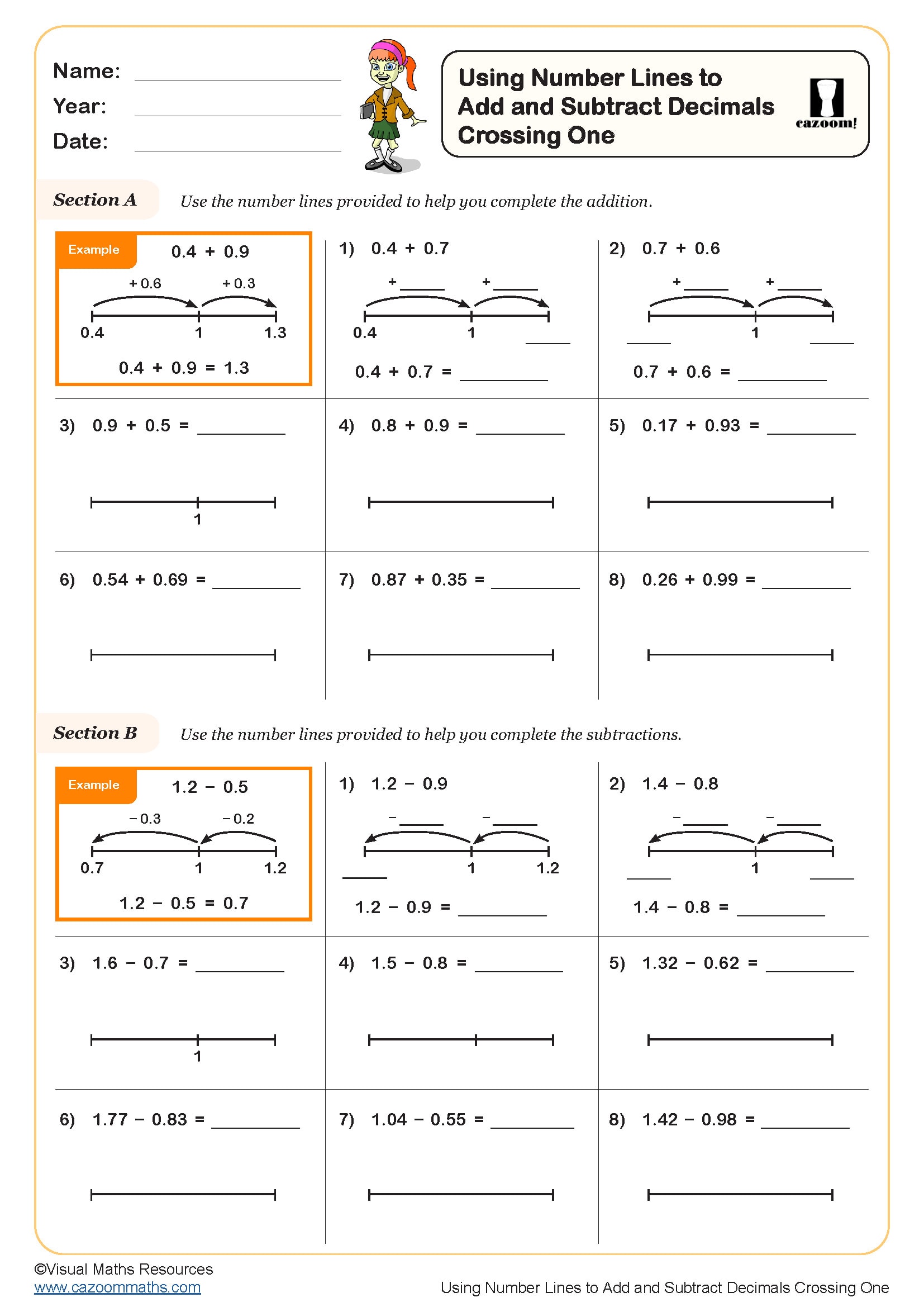
Whole Number and Improper Fraction Equivalence
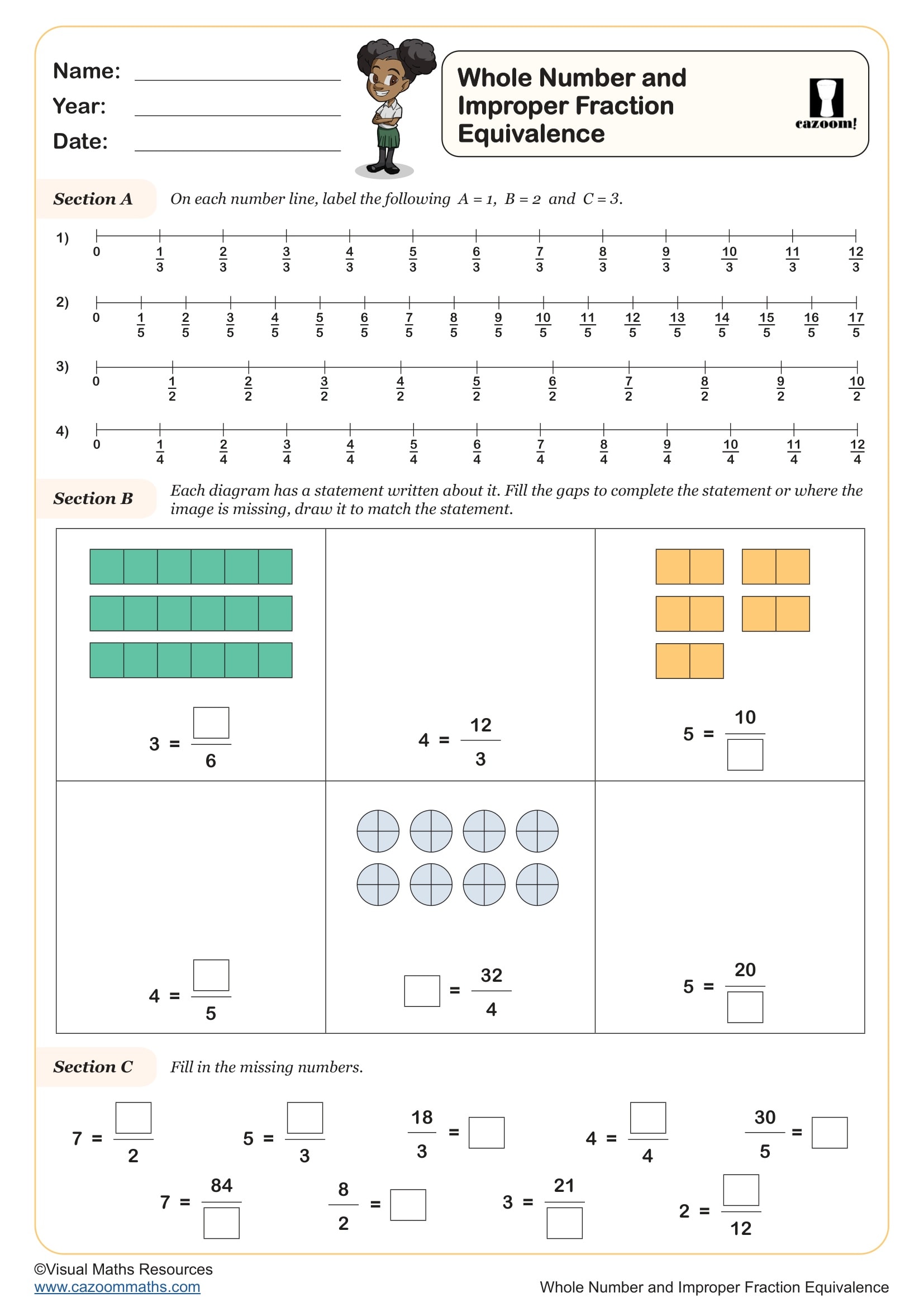
All worksheets are created by the team of experienced teachers at Cazoom Maths.
Year 5 Fractions, Decimals and Percentages Converting Worksheets with Answer Keys
Our worksheets help students strengthen their understanding of key concepts such as whole number and improper fraction equivalence, subtracting fractions from whole amounts, compare mixed numbers, partitioning mixed numbers, divide decimals by integers, and many more. Every resource is created in ready-to-use, printable PDF format and features a clear layout, visual models, and real-world contexts that bring these mathematical ideas to life.
What Mathematical Skills Are Mastered Through These Year 5 Activities
We've packed quite a lot into these worksheets! Students start with equivalent fractions (the foundation stuff) before moving on to mixed numbers, improper fractions, and decimal place value up to thousandths. The percentage work is particularly popular - students love the 100-square grids that make percentages visual and concrete. Each activity builds on previous learning whilst introducing new concepts at just the right pace.
Comparing Fractions, Decimals and Percentages: Why Year 5 Practice Matters
Here's something we've noticed after years of teaching: students who get regular, focused practice with fractions, decimals and percentages perform significantly better in their SATs and beyond. These worksheets provide exactly that targeted practice. They're perfect for homework, intervention groups, or those precious few minutes when you need engaging, meaningful work.
Key benefits that make the difference:
• Builds essential number sense for secondary school mathematics
• Develops problem-solving confidence through step-by-step progression
• Reinforces place value understanding with decimal work
• Connects abstract concepts to real-world situations
• Prepares students thoroughly for Year 6 SATs requirements
Using Fractions, Decimals and Percentages in Everyday Problem-Solving Situations
From calculating discounts during shopping trips to understanding sports statistics, these basic number skills connect directly to daily life. We have seen students get genuinely excited when they realise they can work out sale prices or compare data from their favourite football teams using percentage knowledge.
Everyday applications that spark interest:
• Shopping discounts and sale calculations
• Cooking measurements and recipe scaling
• Sports statistics and performance data
• Digital technology and computer graphics
• Science experiments and data collection
• Financial literacy and pocket money management